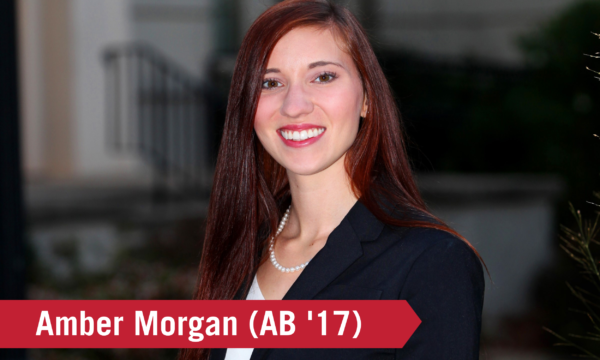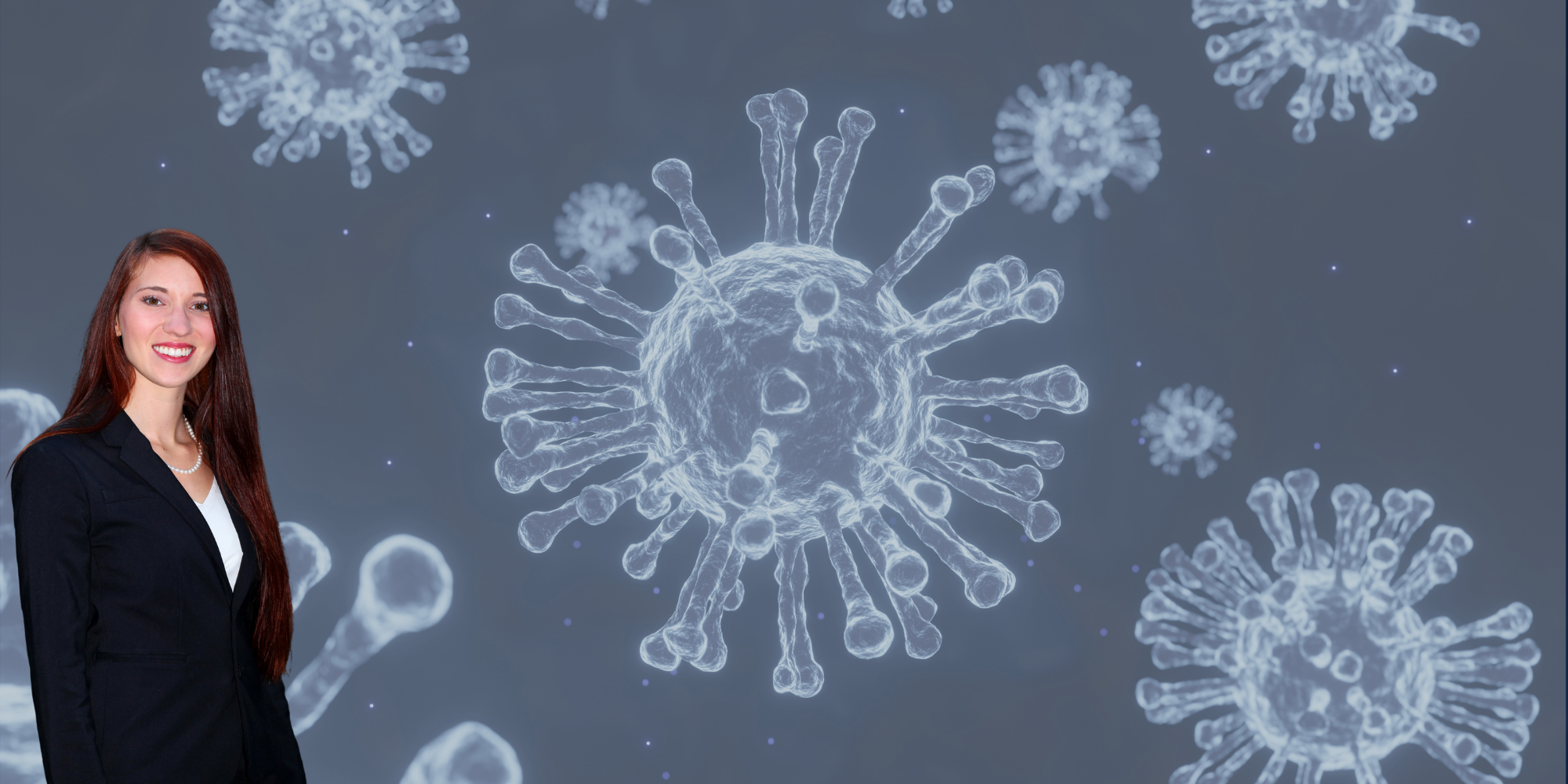During her time in the Richard B. Russell Security Leadership Program (SLP), Amber Morgan (AB ’17) studied national security and international conflict, but could not have imagined managing those issues during a global pandemic.
Morgan now works for the U.S. Department of Energy’s (DOE) National Nuclear Security Administration (NNSA) and its Office of Defense Nuclear Nonproliferation; she focuses on reducing nuclear proliferation risks by eliminating or removing excess nuclear and radioactive materials from around the globe, and minimizing their future use where possible.[1]
After graduating from UGA, Morgan earned a master’s degree in Nonproliferation and Terrorism Studies at the Middlebury Institute of International Studies. She also worked on nonproliferation and arms control issues in Vienna, Austria, as an intern at the U.S. Mission to International Organizations and the International Atomic Energy Agency, and held roles at Harvard’s Belfer Center, the Center for Nonproliferation Studies, the Center for International Trade and Security, and the Naval Postgraduate School. In 2019, Morgan won a Women in Defense Scholar Award from the National Defense Industrial Association, which encourages women to pursue careers in national security, defense, or foreign policy. Morgan began at NNSA as a graduate fellow in 2019, but quickly moved up to become an International Nuclear Safeguards Program Analyst as a federal contractor, and, most recently, to a Foreign Affairs Specialist as a federal employee.
Established by Congress in 2000, NNSA enhances national security through the military application of nuclear science. NNSA oversees the U.S. nuclear stockpile across eight sites, works to reduce the global danger from weapons of mass destruction, provides the U.S. Navy with safe nuclear propulsion, and responds to nuclear and radiological emergencies in the U.S. and abroad.
“Much of my day-to-day responsibilities include ensuring that our experts are able to effectively communicate programmatic activities and needs with our leadership and vice versa,” Morgan said.
NNSA has continued to implement its nonproliferation priorities by adapting during the pandemic, without significant disruptions to the supply-chain or workforce. Modifications include now-standard virtual meetings to connect both internal team members and international partners.

